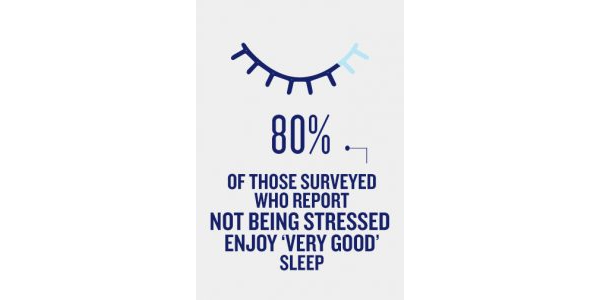WHY DO I HAVE NIGHTMARES CONSTANTLY?
In French, a nightmare is called cauchemar, which translate to, "devil that squeezes". In fact, the realistic experience of nightmares is, as the name suggests, heavy and even distressing if we wake up immediately from one. Although the content of nightmares cannot always be interpreted, frequent nightmares can be an indicator of serious medical disorders. Why do I constantly have nightmares is a very positive question that you can ask yourself if you experience them more than once a week.
CAUSES OF NIGHTMARES
It is not known exactly why we have nightmares. In fact, everyone is different in this manner: some never have nightmares, others only at an early age, and the rest experience them throughout their lives. Of course, despite having a genetic character, there is no doubt that its appearance, frequency and recurrence are directly related to shocking life events and a rhythm of life that is highly compatible with stress.
However, having nightmares more than once a week can be explained by medical disorders related to sleep, mood or the intake of certain medications. In many languages, the word nightmare is used as a metaphor for a threatening and distressing daytime experience. However, constant nightmares are the visible face of a problem that we are not aware of, which is even likely to be aggravated by a bad night’s sleep. In fact, the fear of having a nightmare can substantially delay sleep and even cause insomnia due to anxiety. Let's address below what alterations are behind the repeated nightmares.
NIGHTMARES AND MEDICAL PROBLEMS
A nightmare disorder is a medical problem in its own right but can be linked to some psychological illnesses. It is not yet known exactly how the cause and effect of nightmares works, although its adaptive function with respect to excessively stressful stimuli for the organism is clear. In fact, it is convenient to take them into account because they alert us as a prodrome or initial sign of another disease, which helps us to start early treatment.
These are some medical disorders that have nightmares as one of their symptoms:
- Post-traumatic stress disorder (PTSD). Although this condition is often found in people who have had life-threatening experiences, PTSD and recurring nightmares occur without the event itself being life-threatening. For example, the death of a loved one can trigger both disorders.
- Depression and anxiety. Serious episodes of depression and anxiety are related to a high frequency of nightmares, likely this is because it is difficult for our brain to manage the emotions derived from these mood imbalances.
- Sleep disorders such as sleep apnea and narcolepsy. These disorders may have associated symptoms such as nightmares, although the mechanism that links these is not exactly known. Indeed, the sudden awakening that occurs in apnea can be accompanied by sensations of suffocation, panic and gasping, which can be confused for a nightmare.
- Asthma and chronic pain. People with these conditions wake up more, which can lead to more disturbing dreams.
- Drugs. Among a long list of types of medication, some can cause nightmares such as antidepressants, analgesics and opiates such as morphine, antihistamines, anti-epileptics, antipsychotics, retrovirals, drugs used in cardiology and Parkinson's. In addition, abrupt withdrawal of opiates for pain and sleeping pills can also produce them.
- Sudden withdrawal from substances that cause addiction, such as alcohol and drugs.
- Monitoring rest is a priority for people who want to make the most of their days. The question surrounding the frequency of nightmares comes precisely from the awareness that our health is something that we have to take care of so that life does not turn into a bad dream.
Feel it for yourself
Find a TEMPUR store or Stockist and try out our range of mattresses for yourself

SIGN UP FOR THE NEWSLETTERS!
By signing up, you agree to receive TEMPUR Australia’s products, services, news, reviews and promotions by emails. For more information on how we process your personal data, please refer to our Privacy Policy.




